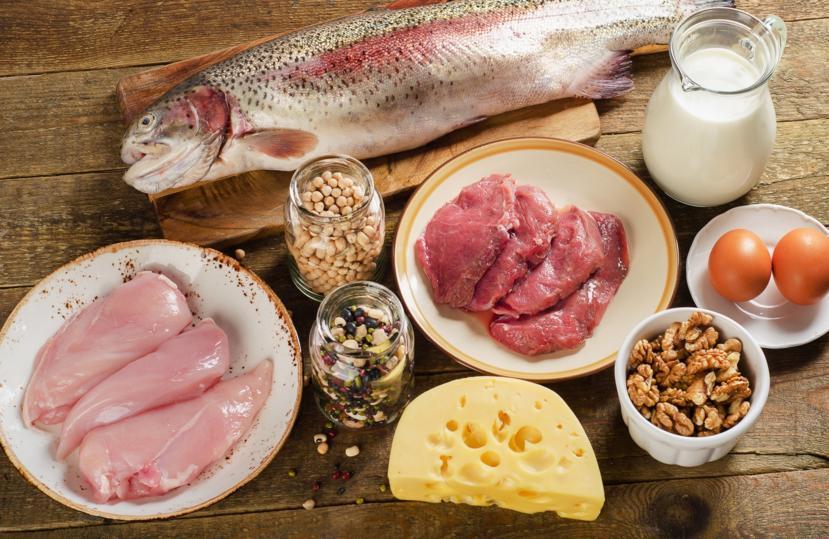A High Protein Diet is the Key to Lean Body Mass

A new study shows that higher amount of proteins in the diet is beneficial when a person is overeating. The study also showed that overeating increases the body fat regardless of the amount of protein in the meal. Those who had very low levels of protein had a higher percentage of calories stored as fat. They also lost a lot of lean body mass while those who had higher levels of protein in the diet gained on lean body mass. Researcher George Bray, MD, Boyd professor and professor of medicine at the Pennington Biomedical Research Center in Baton Rouge, says that the study is clear in telling that both calories and protein content matter in a meal. The results of the study are published in, Journal of American Medical Association.
Some studies have shown that overeating with low or high protein intake would lead to less weight gain compared to overeating with a regular protein levels in the diet. In this study, the researchers assessed how the levels of protein affect the weight gain, body composition, and resting energy expenditure when the person overeats. The study was conducted on 25 healthy men and women, all between the ages of 18-years-old and 35-years-old, with the body mass index ranging between 20 and 30.
Each participant initially had a weight-stabilizing diet for 13 to 25 days. Then they were assigned to any of the three protein diet groups: 5%, 15%, or 25% protein diet. After this they were fed on one of the three protein levels with 1,000 extra calories a day. Weight, body composition, and resting energy expenditure of the participants were measured before and after the study. The findings of the study could help to formulate the best diet practices to avoid weight gain and to maintain lean body mass.
The results show that all the groups gained weight, with the least gain by the group who had low-protein diet. The weight gain in this group was about 7 pounds. The weight gain in the normal protein diet was 13.3 pounds while the high protein group had a weight gain of 14.4 pounds. The most interesting part was that a higher percentage of the calories were stored as fats in the group assigned to the low-protein diet. They also lost a good amount (1.5 pounds) of lean body mass. The lean body mass gained by the normal protein diet group was 6.3 pounds while that of high protein group was 7 pounds. The amount of calories burnt while resting was more in the groups with normal and high protein diet. Increased lean body mass is linked with increased metabolism.
The study clearly shows that low-protein diet is not good for lean body mass, says Bray. The study did not find any significant difference in the body composition among the different groups. Any healthy adult should try and get 12% to 15% protein from their diet, adds Bray. Thus for a diet of 2,000 calories, 300 calories should be from protein ,which makes up to 75 grams of protein.
David Heber, MD, professor of medicine at the UCLA David Geffen School of Medicine and founding director of UCLA's Center for Human Nutrition, says that the study shows the down sides of eating too less protein in a diet. Normally when the amount of protein reduces, it is made up by eating too much of refined carbohydrates which tend to be converted into fat. Increasing protein in the diet controls the appetite, and maintains the lean body mass without increasing the content of fat.









